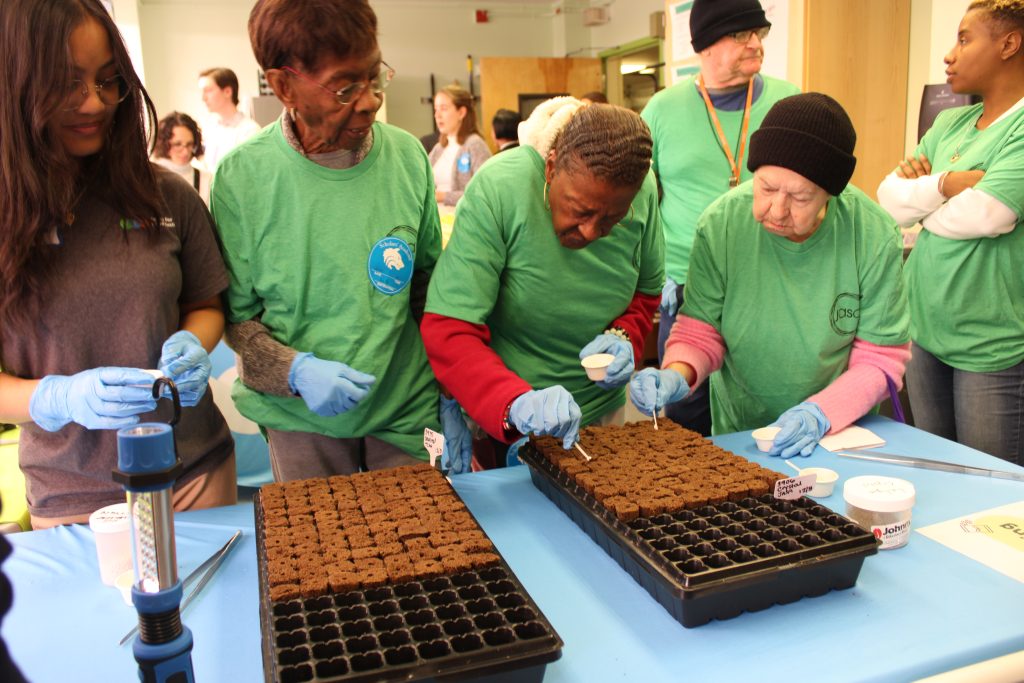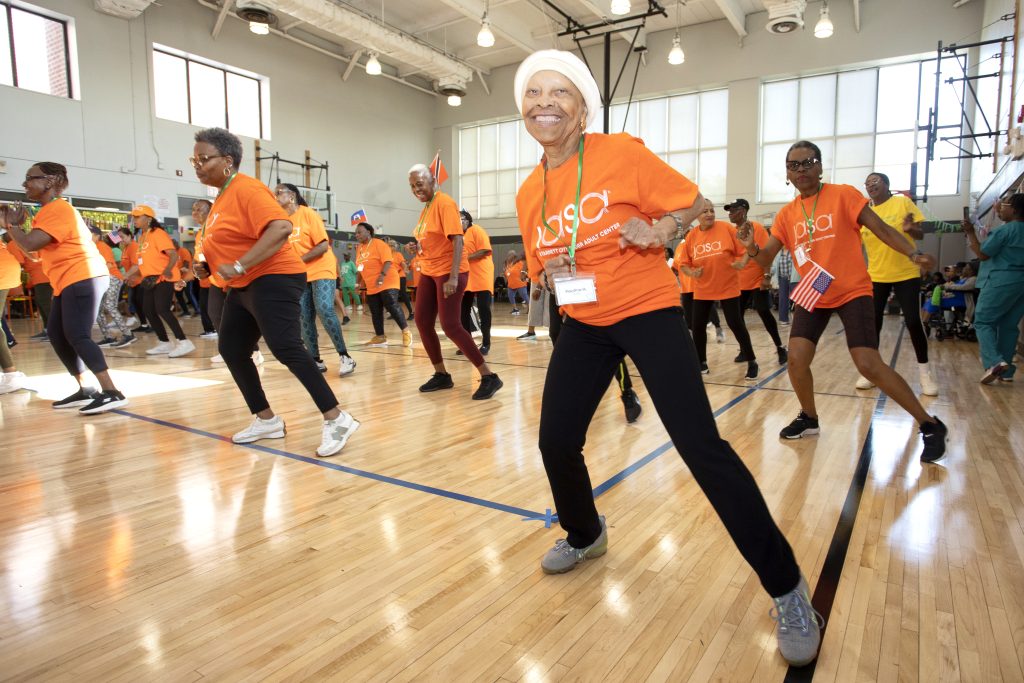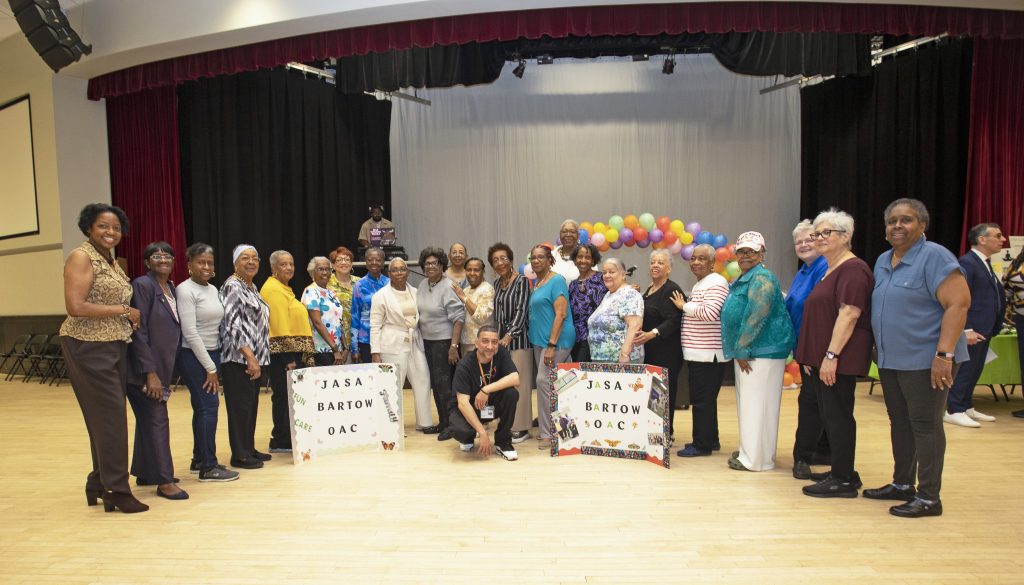
Courtesy JASA
Inside the Struggles of NYC Seniors: A Talk with JASA
By MOHAMED FARGHALY
mfarghaly@queensledger.com
A new survey of older New Yorkers highlights alarming financial, housing, and social challenges facing the city’s aging population, according to the Jewish Association Serving the Aging (JASA). The survey found that 40% of seniors are struggling to pay bills, one in four cannot access stable housing, and one in five report intense loneliness.
Staffed seven days a week by experienced social workers, JASA’s Help Center fields over 6,000 calls annually from older adults and their caregivers, connecting them to services including Medicaid enrollment, mental health care, legal support, housing assistance, home care, and community programs.
“We hear from older adults, some in their 80s, who are struggling to pay skyrocketing rent or keep up with rising maintenance and taxes, leaving them facing eviction and the fear of homelessness,” Meredith Levine, JASA’s Senior Director of Care Management and Information Services said. “Rising food costs force those on limited incomes to stretch their budgets by sacrificing food quality for less healthy items or cutting down to two small meals a day. Many also delay or go without unaffordable home care, leading them to perform risky activities like shopping and showering alone, which puts them at risk for falls. This financial strain extends to caregivers, who struggle to afford ongoing supplies like adult diapers and may find their ability to work impacted as caregiving needs increase.”
Housing challenges are widespread, especially amid a city-wide housing crisis. “Even seniors who already have housing face rising numbers of eviction cases. Homeowners are increasingly targeted by growing scams, such as deed theft and other forms of financial elder abuse that can leave them without secure housing. We also frequently hear from older adults whose physical needs have changed, forcing them to suddenly rethink their living situations when they can no longer safely navigate stairs in walk-ups or their homes,” Levine said.
JASA also helps combat social isolation. “While social connection is not usually the primary reason someone contacts the Help Center, our highly trained staff listen for clues about a caller’s social life during their assessment. Based on their findings, they can suggest specific JASA programs designed to combat isolation, such as JASAChat, which facilitates intergenerational friendships, community programming in our residential buildings, and social activities at our Older Adult Centers throughout the city.”

Caregivers are supported through programs including partnerships with Montefiore’s Einstein Hudson Valley Center of Excellence for Alzheimer’s Disease and JASA’s Caregiver Support Program in Southern Brooklyn. “This program offers support groups, trainings, respite, and supplemental supplies to ease the emotional and financial burden on caregivers,” Levine said.
The Help Center also guides seniors through complex government programs. “Our staff can educate community members on the types of benefits available, discuss eligibility criteria, clarify the differences between programs, and explain the application process. Following this initial guidance, the Help Center connects clients to specific JASA team members who can assist with enrollment through careful handoffs.”
Levine described how the process works: “When someone calls the Help Center for the first time, a trained social worker will answer the phone. Our team makes evaluations on a case-by-case basis. We don’t follow a script or require you to sign forms or give us information you don’t want to share. Instead, when we answer the phone, we listen to your challenges and use our deep knowledge and experience to figure out what you need and how you can get it. If you have to leave a voicemail, it will be returned within two business days.”
JASA serves over 40,000 older New Yorkers annually. “Rather than using scripts or intake forms, our team listens carefully to the circumstances of each caller to ensure the recommended solutions match the problems at hand. To minimize barriers to access, we have expanded our hours to seven days a week and evenings and have staff who speak Spanish, Russian, and English,” Levine said.
For New Yorkers seeking help for themselves or others, Levine said: “The most important thing to know about the Help Center is that you are not alone. The Help Center is a resource any older adult or caregiver can take advantage of, so don’t be afraid to ask for help. The Center can be reached 7 days a week at 212.273.5272, via email at help@jasa.org, or often through Live Chat on the JASA website. Information is also available at https://www.jasa.org/services/help-center. As our lives evolve, it’s critical to know which supportive options are available to you. If you’re in need of support, give us a call – it’s our priority to help you age safely in your home and community for as long as possible.”



